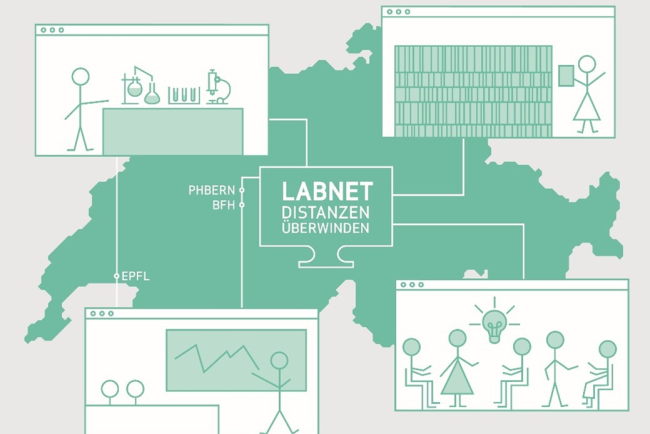"Not reinventing the wheel" and "overcoming distances" are the two paradigms underlying the planned open laboratory network LabNet. How this can implemented in schools is being tested in this project.
Project description
Initial situation
Learning labs and especially maker spaces are learning spaces that often re-quire special hardware or software. Thus, the operation of a learning lab or ma-ker space is costly. If you want to offer a certain range of services, high in-vestments are necessary and a suitable infrastructure is required, especially in terms of premises.
Once a learning lab has been set up, the throughput is relatively low, since in-structions have to be given or devices such as 3D printers work relatively slow-ly. If a user wants to visit a learning lab, a suitable location must be found and visited. Especially in the school environment, this requires extensive planning and a lot of time must be invested.
The problem can be alleviated if existing learning labs join together to form a network, a LabNet. "Not reinventing the wheel" and "overcoming distances" are the two paradigms underlying the planned open laboratory network LabNet. Materials and components developed in one laboratory should also be availab-le at the other LabNet locations. Furthermore, attendance times are to be re-duced through an increasingly digitalised offer and its online availability. This increases the range of services that can be used by users with short distances in the future.
Predecessor Project LabNet
In the predecessor project LabNet, a concept for an open laboratory network LabNet and potential application sce-narios in universities and schools were developed, see LabNet report https://www.phbern.ch/sites/default/files/2023-03/LabNet_Ergebnis-Repor… (only in german).
Objective
In this follow-on project, a potential application scenario will be implemented and evaluated in several schools. The implementations should take into ac-count special educational approaches so that all pupils can participate accord-ing to their abilities and prerequisites. Additionally, various low-threshold hyb-rid communication scenarios will be created.
The project serves
1. to develop and evaluate project elements that make the added value of the LabNet idea usable in the classroom.
- To increase the range of laboratory activities in schools.
- Promoting inclusion and equal opportunities
2. promoting creative parts in project activities
3. optimising the LabNet concept
4. developing and evaluating the first hybrid communication sets.
Management
Team
+41 31 309 29 15
